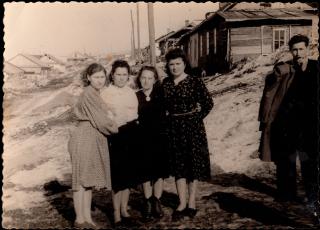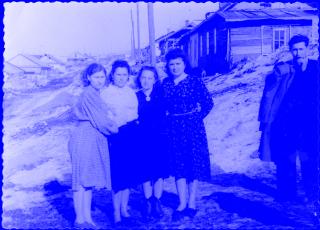Topic
Experience and Memory of Soviet Deportations (1944-1955)
This research is based on the oral histories of victims of Soviet deportation from the western part of Ukraine to territories in the East of the USSR, such as Siberia and Kazakhstan. The deportees lived in the so-called “special settlements” that existed in the Soviet Union in the 1920s-1950s. The research uses narrative analysis and contextualizes stories of the deportees in the post-independence memorial culture in Ukraine.

Experience and Memory of Soviet Deportations from the Western Part of Ukraine (1944-1955): An Oral History Project
Ukrainian territory was annexed to the Soviet Union first in 1922, along with today’s western Ukraine in 1939. This later annexation led to the deployment of a new wave of repression as the Soviet Union tried to consolidate its power. One of the powerful tools of repression became mass deportations. During 1944-1946 alone, the Soviet authorities deported 36,609 people, including those associated with the struggle for the independence of Ukraine, their families, and even people who simply lived in the same village as the rebels. The deportees were sent to remote parts of the Soviet Union, living in special settlements in barracks under the supervision of the NKVD. The memory of deportations and, in general, of Soviet repression, was and still is changing; the deportees hid their experiences for many years, ostracized as “enemies of the nation” in the USSR. After the independence of Ukraine, their stories were “discovered” against the background of a changing political climate that considered those experiences from entirely different angles.
The research uses oral historical materials recorded by the Ukrainian NGO "After Silence" in Lvivska, Ternopilska, Ivano-Frankivska, Volynska, Rivnenska, Khmelnytska, and Zakarpattia regions of Ukraine.

